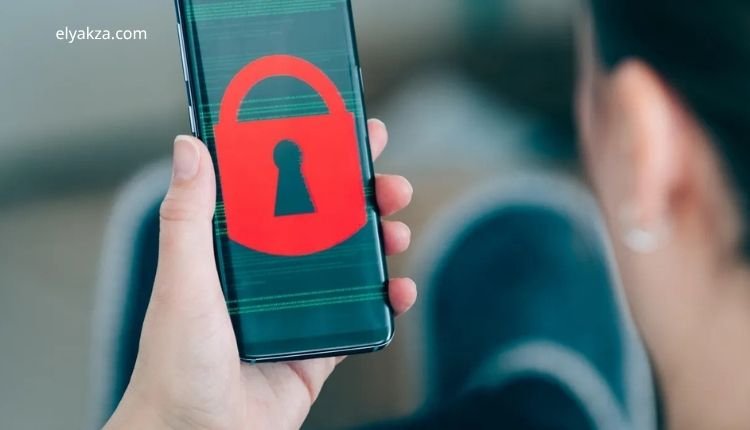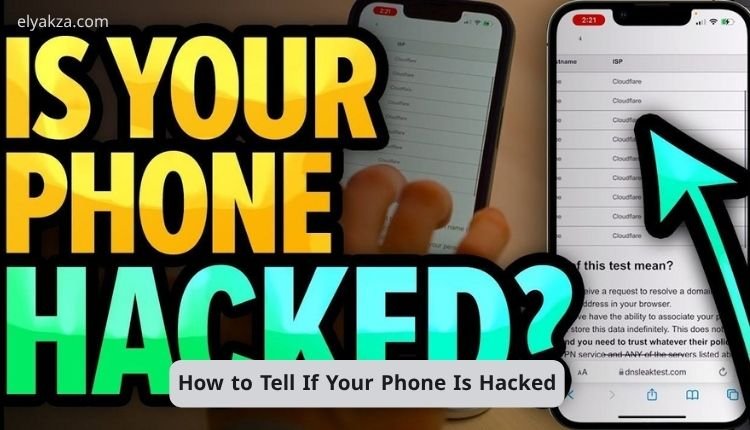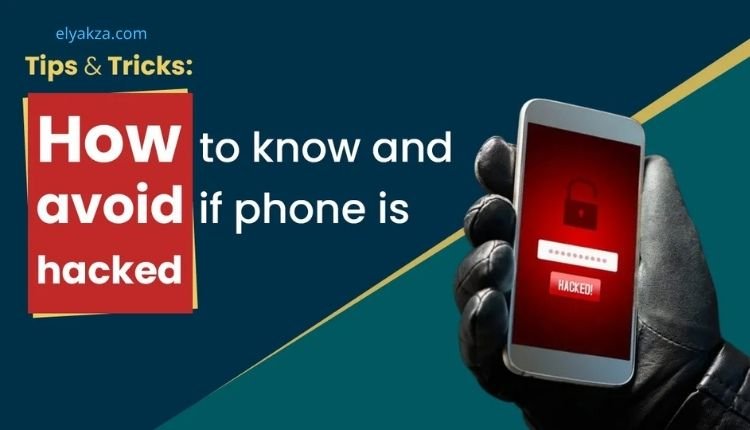Smartphones have become an inseparable part of modern life. From banking and shopping to social networking and work-related communication, these pocket-sized devices carry more personal and financial information than ever before. Unfortunately, this also makes them an attractive target for cybercriminals. If your phone gets hacked, it can lead to stolen identities, drained bank accounts, or even blackmail attempts.
قائمة المحتويات
This article provides a comprehensive guide on how to tell if your phone is hacked, what immediate steps to take if it happens, and how you can protect yourself from future attacks. Whether you use Android or iPhone, the risks are real—but with the right precautions, you can keep your data safe.
Can Someone Hack My Phone?
The short answer is yes—any smartphone can be hacked. While iPhones are often considered more secure than Android devices due to Apple’s strict ecosystem, neither is immune to cyberattacks. Hackers exploit vulnerabilities, human error, or both, to gain unauthorized access to your device.
Common Methods Hackers Use
- Phishing Attacks: Fraudulent emails, texts, or links trick users into downloading malicious apps or sharing sensitive information.
- Fake Wi-Fi Networks: Public Wi-Fi spots that appear legitimate but are controlled by attackers who intercept your data.
- SIM Swap Attacks: Hackers convince your carrier to transfer your phone number to a SIM card they control, gaining access to calls, messages, and two-factor authentication codes.
- Malicious Apps: Third-party app stores may host apps containing hidden spyware or malware.
- Infected Accessories: Charger cables or USB devices can secretly install harmful software on your phone.
Understanding these tactics is the first step in learning how to tell if your phone is hacked before the damage escalates.
How to Tell If Your Phone Has Been Hacked
Hackers rarely announce their presence. Instead, they operate silently, siphoning off your data while trying to remain undetected. Still, there are several red flags that may indicate your phone has been compromised.
1. Rapid Battery Drain
A sudden decrease in battery life is often one of the earliest warning signs. Malware running in the background consumes extra processing power, causing your phone to heat up and lose charge quickly.
2. Unexpected Data Usage and High Bills
If you notice unexplained spikes in your mobile data usage or receive unusually high bills, it could mean your phone is secretly sending information to attackers.
3. Strange Apps or Behavior
If apps appear on your phone without your knowledge, or existing apps begin crashing, freezing, or opening by themselves, that’s a strong sign of malicious activity.
4. Rogue Notifications and Pop-Ups
Receiving unrequested verification codes, random pop-ups, or altered settings such as microphone or camera permissions are clear signs of tampering.
5. Locked-Out Accounts
If you are suddenly logged out of your Apple ID, Google account, or social media platforms without explanation, a hacker may have seized control.
6. Security Software Alerts
Running a reputable antivirus program like Norton, Bitdefender, or McAfee can help detect and confirm whether your phone has been compromised.
By paying attention to these signals, you can catch an attack early and minimize potential harm.
“Read About: Nothing Phone 3 Review“
What to Do If Your Phone Has Been Hacked
Discovering that your phone has been hacked can be stressful, but immediate action can help you regain control and prevent further damage.

zContact Financial Institutions
Inform your bank, credit card providers, and payment apps about the potential breach. Freeze your accounts if necessary to prevent unauthorized transactions.
Step 2: Change All Passwords
Reset passwords for your email, social media, cloud storage, and financial accounts. Use a password manager to create strong, unique combinations.
Step 3: Remove Suspicious Apps
Go through your phone’s app list carefully. Delete anything you don’t recognize or that seems suspicious. Restart your phone afterward to confirm the changes.
Step 4: Perform a Factory Reset
If problems persist, back up your essential data and reset your phone to factory settings. This eliminates most malware but should be considered a last resort.
Step 5: Notify Your Contacts
Hackers often send phishing texts or emails from hacked devices. Let your friends, family, and colleagues know to ignore suspicious messages from your number.
Taking these steps quickly will not only protect you but also minimize the risk to others.
“Read About: Cloud Virtual Machines“
How to Protect Your Phone From Future Hacks
Once you’ve recovered, prevention should be your top priority. Cybersecurity is not a one-time action but a continuous habit:

Keep Software Updated
Install all system and app updates promptly, as they often include security patches that fix known vulnerabilities.
Use Security Software
Install a reputable antivirus or mobile security app. Many provide real-time monitoring, phishing protection, and theft-prevention features.
Strengthen Your Passwords
Avoid reusing passwords across multiple accounts. Consider enabling biometric authentication (fingerprint or facial recognition) whenever possible.
Be Cautious With Public Networks
Never connect to unsecured Wi-Fi without using a VPN (Virtual Private Network). Also, avoid charging your phone with public USB stations.
Limit App Permissions
Review your apps regularly and restrict access to sensitive data such as location, microphone, or camera.
Stick to Trusted Sources
Only download apps from the Google Play Store or Apple App Store. Third-party sites are often breeding grounds for malware.
By integrating these habits into your daily phone use, you significantly reduce the chances of facing another hack.
“Read About: Best Antivirus for Android“
Frequently Asked Questions (FAQs)
Can an iPhone be hacked?
Yes. While iPhones have stricter security controls, they are not invulnerable. Jailbroken devices are especially at risk.
How do I know if someone is spying on my phone?
Look for unusual battery drain, increased data usage, background noise during calls, and apps you don’t remember installing.
Is antivirus software necessary for smartphones?
Yes. While mobile operating systems are designed with security in mind, antivirus apps add an extra layer of defense.
Can hackers access my phone through Wi-Fi?
Yes. Fake public Wi-Fi networks allow attackers to intercept your data. Always use a VPN when on public Wi-Fi.
What should I do if I suspect my SIM card was swapped?
Contact your carrier immediately, freeze your financial accounts, and reset passwords linked to your phone number.
how to tell if your phone is hacked: the Conclusion
In today’s hyper-connected world, your smartphone is more than just a communication device—it’s a digital vault of your identity, finances, and personal life. Knowing how to tell if your phone is hacked can mean the difference between minor inconvenience and devastating loss.
By recognizing the early warning signs, acting quickly to secure your device, and adopting strong preventive measures, you can safeguard your data against cybercriminals. Hackers thrive on negligence, but with awareness and proactive steps, you can stay one step ahead.
الاسم/ علي أحمد، كاتب متخصص في المقالات الإخبارية والترندات الحالية التي تشغل اهتمام الكثير من الأشخاص في الدول العربية، كما نقوم بنشر مقالات عامة متنوعة تُزيد من ثقافة القارئ العربي. لدينا خبرة طويلة في مجال المقالات الإخبارية والترندات والمقالات العامة المتنوعة، ونعتمد على المصادر الموثوق فيها لكتابة محتوى هذه المقالات. هدفنا هو إيصال المعلومات الصحيحة للقارئ بشكل واضح ومباشر.
يتميز علي أحمد بكتاباته التي تغطي مجموعة واسعة من المقالات العامة والأخبار العاجلة والموضوعات الرائجة. يجمع في طرحه بين السرعة في مواكبة الأحداث والدقة في نقل المعلومات، ليقدم للقارئ صورة واضحة وشاملة.
يركز على تحليل الأحداث بموضوعية وحياد، مع تقديم خلفيات مختصرة تساعد القارئ على فهم الخبر في سياقه. كما يعرض مقالات متنوعة حول الترندات الاجتماعية والتكنولوجية والثقافية، مما يجعل محتواه مناسبًا لجمهور واسع. كتاباته تعكس حرصًا على أن يكون الموقع دائمًا في قلب الحدث، مع محتوى جذاب يواكب اهتمامات القراء ويثير النقاش حول أبرز القضايا المعاصرة.

